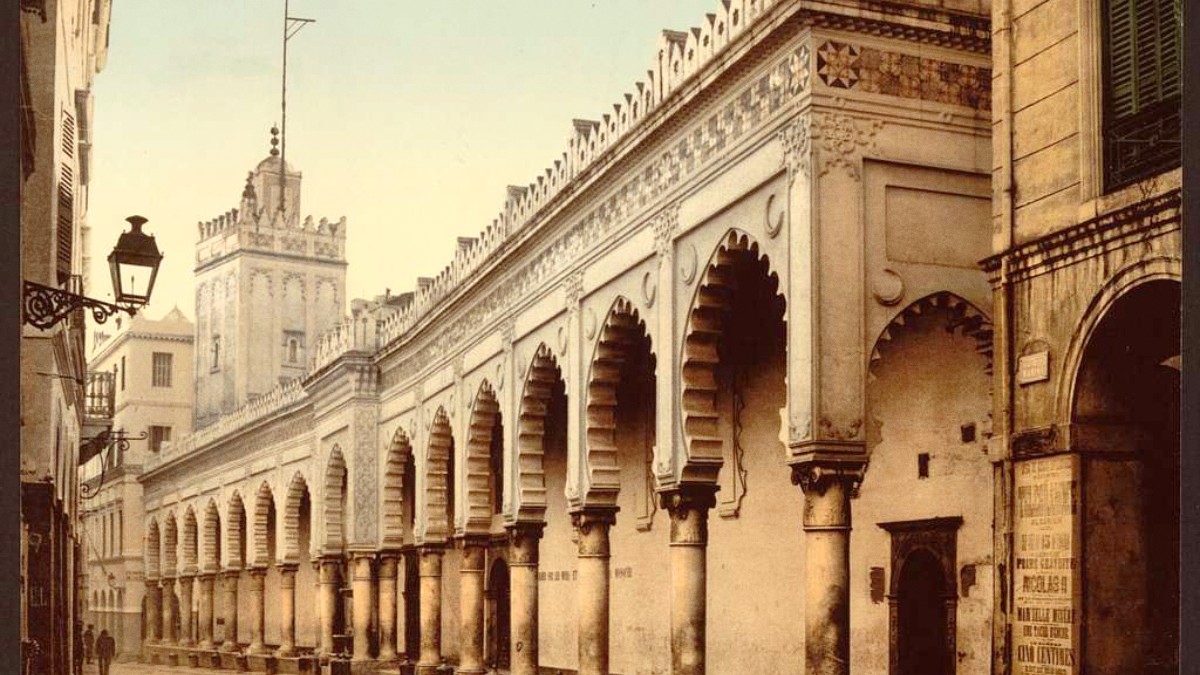
Algeria
Average daily temperatures vary across the year. In January, the coolest month, temperatures are around 12°C (54°F). August, the warmest month, sees averages of 26°C (79°F). However, summer temperatures frequently exceed 35°C (95°F), sometimes reaching 40°C (104°F) or higher.
The wettest months are October to April, with December and January typically receiving the most rainfall. Summers, from June to August, are largely dry, with very little or no rain. Coastal areas, including Algiers, maintain higher humidity. This is especially true during the summer, making high temperatures feel warmer.
These periods offer different conditions. Fewest tourists visit during summer due to extreme heat. If you enjoy beach activities, summer suits enjoyment of the Mediterranean coast.
Winter prices are lowest, and tourist numbers are minimal. However, cooler temperatures and a higher chance of rain limit outdoor exploration. Some outdoor cafes might have fewer seats.
June-August
Beaches are at their best. Fewer city tourists.
Extreme heat. Midday sightseeing is difficult.
March & November
Mild temperatures, fewer crowds, better prices.
March can have cool days/rain. November sees more rain.
April-May & Sep-Oct
Pleasant weather (20-25°C), comfortable outdoor exploration.
Higher hotel prices, more tourists. Book in advance.
Intense summer heat calls for careful planning. Always stay hydrated. Drink plenty of bottled water. Wear light, breathable clothing. Use Sunscreen with a high SPF. Avoid direct sun exposure during peak midday hours (12 PM - 4 PM).
Occasional sandstorms, from the Sahara Desert, reduce air quality and visibility. These are more common in spring and autumn, though less frequent in Algiers itself compared to inland areas. If one happens, remain indoors, especially if you have respiratory sensitivities.
Carry ample water, especially in summer.
Wear Sunglasses and a Wide-brimmed hat.
Find shade frequently during peak sun hours.
Be aware of potential sandstorms and indoor safety.
Align your trip dates with your desired activities and weather tolerance.
A visa is mandatory for most foreign nationals, including citizens of the United States, United Kingdom, Canada, Australia, and European Union countries. Obtain your visa in advance.
Common visa types include Tourist, Business, Cultural, Transit, and Family visas. Each type matches a specific trip intent. Obtain visas from an Algerian embassy or consulate in your country. Online applications are generally not available; typically, submit physical documents in person or by mail. Start the application process well in advance.
Check specific requirements and processing times with the Algerian embassy or consulate serving your region. Special permits may be necessary for travel to certain southern regions, especially those bordering the Sahara Desert. Arrange these through a registered tour operator in Algeria. Independent travel to these regions without permits is not possible.
Algeria uses the Algerian Dinar (DZD). A remarkable difference exists between the official exchange rate and the parallel (black) market rate. The parallel market generally offers more Dinars for foreign currency. However, it operates unofficially and carries risks. ATMs are available in major cities for Dinar withdrawals at the official rate.
Understand recommendations for vaccinations, common health concerns, and general safety practices.
No specific vaccinations are required for entry unless from a high-risk Yellow Fever country.
Routine vaccinations (MMR, DTaP, Polio) are advised. Hepatitis A and Typhoid are recommended for most travelers.
Consult a travel clinic or doctor 4-6 weeks before departure for personalized advice.
Traveler's Diarrhea
This is a common issue for many travelers. Drink only Bottled water. Avoid tap water, including ice cubes from tap water. Eat thoroughly cooked food. Use caution with raw vegetables and unpeeled fruits unless you wash them with safe water yourself.
Heat Exhaustion/Stroke happens during hot summer months. Stay hydrated by drinking plenty of bottled water. Wear light, loose-fitting clothing. Use Sunscreen with a high SPF. Avoid direct sun exposure during the hottest parts of the day. Seek shade frequently.
Always carry Hand sanitizer for convenience.
Public healthcare can be basic outside major cities. Private clinics in Algiers offer better quality care but can be expensive. Payment is often upfront.
Police: Dial 17 or 1548. Ambulance/Fire: Dial 14. Confirm nearest emergency facility with accommodation upon arrival.
Tap water is generally not safe for drinking. Use bottled water for all consumption. Eat only well-cooked food. Choose street food vendors with high turnover.
Algiers is generally safe for tourists. Petty crime, like pickpocketing and bag snatching, can occur. This is more common in crowded tourist areas like the Kasbah, bustling markets, and on public transport.
Comprehensive travel insurance is strongly advised. Ensure your policy covers emergency medical treatment, evacuation, trip cancellation or interruption, and lost or stolen luggage. Read policy details carefully before purchasing.